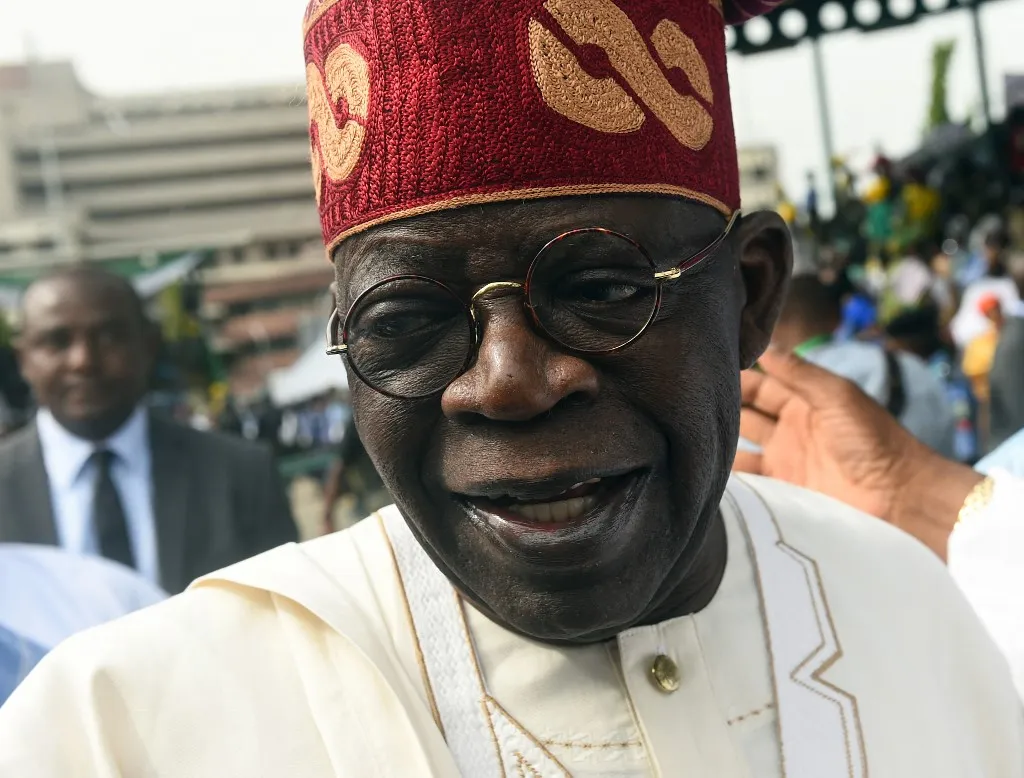One of Nigeria’s leading candidates for the presidency says he will increase national crude production to 2.6m barrels per day (bpd) by 2027, from the 1m bpd produced in October 2022, if he wins the February 2023 presidential election.
Analysts are, however, questioning the practicality of the plan, given the specific challenges Nigeria’s industry faces, as well as global calls to defund fossil fuel investments.
Bola Ahmed Tinubu, who is running to replace the outgoing President Muhammadu Buhari, said that he will achieve his goal by “deterring crude oil theft and preventing vandalism of our pipelines, crude infrastructure and assets”, according to a policy document.
The 70-year-old, who is running for the governing All Progressives Congress (APC), said his administration would create a Special Enforcement and Monitoring Unit whose “sole mandate” would be “to protect the nation’s pipelines by deploying technological interventions” such as stationary aerial monitoring platforms, drones “towards curbing production disruptions” and would focus “more investment on frontier oil and gas exploration, particularly in as yet untapped parts of the country within the Lake Chad basin”.

Many obstacles to meeting 2.6m bpd target
But, according to Opec figures, Nigeria has not produced more than 2m bpd since the first quarter of 2019, while experts argue that pledges made at Cop26 in 2021 by 20 world powers, including the US, to stop public financing for fossil fuel projects abroad by the end of next year make Tinubu’s goal unrealistic.
UK-based economist Ekpen Omonbude says that the Tinubu policy statement fails to account for the “net zero climate change effect on securing finance for the development capital expenditure that will be required to raise the production profile by that much”.
There are also questions over whether Nigeria could meet Tinubu’s target in the face of possible concerted action by Opec to impose cuts in a bid to keep prices high. In October, Opec+, which includes both the cartel, of which Nigeria is a member, and non-Opec allies, imposed production cuts of 2m bpd from November in an attempt to support prices. Nigeria backed the decision, which it said was taken for the “exclusive purpose of ensuring the long-term stability of the oil market”.
According to data compiled by SBM Intelligence, a Nigerian geopolitical intelliegence platform, Nigeria, which produced 2.4m bpd in the first quarter of 2014, has seen a steady production decline of 55.2% from the second quarter of 2014 to September 2022. The last time the country met its Opec quota was in July 2020.
“I think the highest production Nigeria has ever done was 2.47m bpd, so on that ground, I don’t think it’s possible,” says Kelechukwu Ogu, an energy analyst at SBM Intelligence.
“Things would have to happen for [Tinubu] to have a chance to even get up to 2m barrels per day – that is if OPEC decides to scrap the declaration of cooperation agreement and allow countries to produce as they want. If we can raise production from production-sharing contracts to maybe 90-100%, from about 40% in the last 20 years, then perhaps that can happen.
“A lot of international oil companies are exiting Nigeria because they’re trying to balance their portfolios, and we don’t know yet if all of the companies that are picking up the tabs are as good and as deep as [Nigerian oil firm] Seplat in terms of managing these assets.”
Campaign insists target is realistic
These are issues “that have been well thought out,” says Lanre Issa-Onilu, deputy director of strategic communications to the APC Presidential Campaign Council.
He says Nigeria failed to meet its Opec quota in the last few years because of theft and insecurity, and insists these are areas that a Tinubu government can fix, especially in light of implementation of the long-overdue 2021 Petroleum Industry Act (PIA).
“Simply, a lot of theft, insecurity and the corporate governance in that sector is not as you would expect. But with the PIA fully implemented and with the state of security improved and theft eliminated… we can easily go back to where we were at least, which was 2.3m barrels per day. The recovery process is well laid out and what factors would aid that have also been examined and we think they are things that are realisable, taking the right actions.”
Authorities say more than $3.3bn has been lost to crude oil theft since last year and given the depth of the problem – in Delta state, thieves built their own 4km pipeline through heavily guarded areas to the sea – analysts are sceptical that solving theft will be easy.
While the APC team says it is “also embracing renewable energy” it insists that fossil fuels will “still remain in the playing field” for the forseeable future.
Disappearing fossil fuel market
But in May this year, European lawmakers voted to cut carbon emissions by 20% by 2025, 10 years earlier than planned, including a shift to electric vehicle use. With road transportation accounting for 20% of the European Union’s greenhouse gas emissions, according to the European Environment Agency, lawmakers are targeting a phasing out petrol- and diesel-powered cars.
The UK is planning to end sales of conventional petrol and diesel cars and vans in 2030, with new hybrids given a stay of execution until 2035, after which those will be phased out in favour of electric and hydrogen-powered vehicles.
“If you look at the fact many countries around the world are transitioning from fossil fuels, it stands to reason to question the aggressive plan to increase crude production when we can focus on something else, say renewable energies,” Tunde Alonge, an independent analyst in Lagos, says. “If you consider that Nigeria has been losing its biggest crude buyers for some time, one struggles to see the benefits of this plan.”
The International Energy Agency (IEA) expects that by 2025, global carbon emissions from energy will peak, spurred by increased spending on clean fuels in response to Russia’s invasion of Ukraine. Market dynamics are going against Nigeria, Ogu says. He argues that India, now Nigeria’s biggest buyer, is more likely to continue sourcing cheap oil from Russia.
“Recently, Russia has become India’s largest supplier of oil, and it is going to keep rising because Russia is now looking to expand by getting tankers for its oil, looking to India, China and the Gulf states because the G7 guys are trying to reduce Russia’s access to their tankers…. It will be more profitable for India to buy Russian oil than to buy Nigerian oil. That means that our biggest market is going, or has practically gone, at least in the nearest future.”
The pathway to the future
Given the extensive challenges – not least Nigeria’s history of low refining capacity – Tinubu’s focus should have been on renewable energies, Ogun says.
“Tinubu’s focus should be that even if we can produce two million, do we have the capacity to refine it for African countries? Or do we just quit oil and just invest in green gas fields? Everybody has accepted that gas is the transition field, so why don’t we look for how to invest more in hydro and geothermal systems and create investments for building solar power plants? That should have been Tibunu’s focus, not increasing output to 2.6m barrels. It’s counter-productive even if it actually works.”
Tinubu’s spokesperson says that the focus on the oil target should not detract from the would-be government’s plans for the gas sector: “The focus is to say Nigeria is not a crude oil country, Nigeria is a gas-producing country, and that is where the emphasis would go.”
The campaign manifesto said it aims to achieve complete deregulation of midstream gas prices within six months of resuming office and will increase gas production by 20% and complete critical gas infrastructure projects by 2027.
Want to continue reading? Subscribe today.
You've read all your free articles for this month! Subscribe now to enjoy full access to our content.
Digital Monthly
£8.00 / month
Receive full unlimited access to our articles, opinions, podcasts and more.
Digital Yearly
£70.00 / year
Our best value offer - save £26 and gain access to all of our digital content for an entire year!
 Sign in with Google
Sign in with Google 



